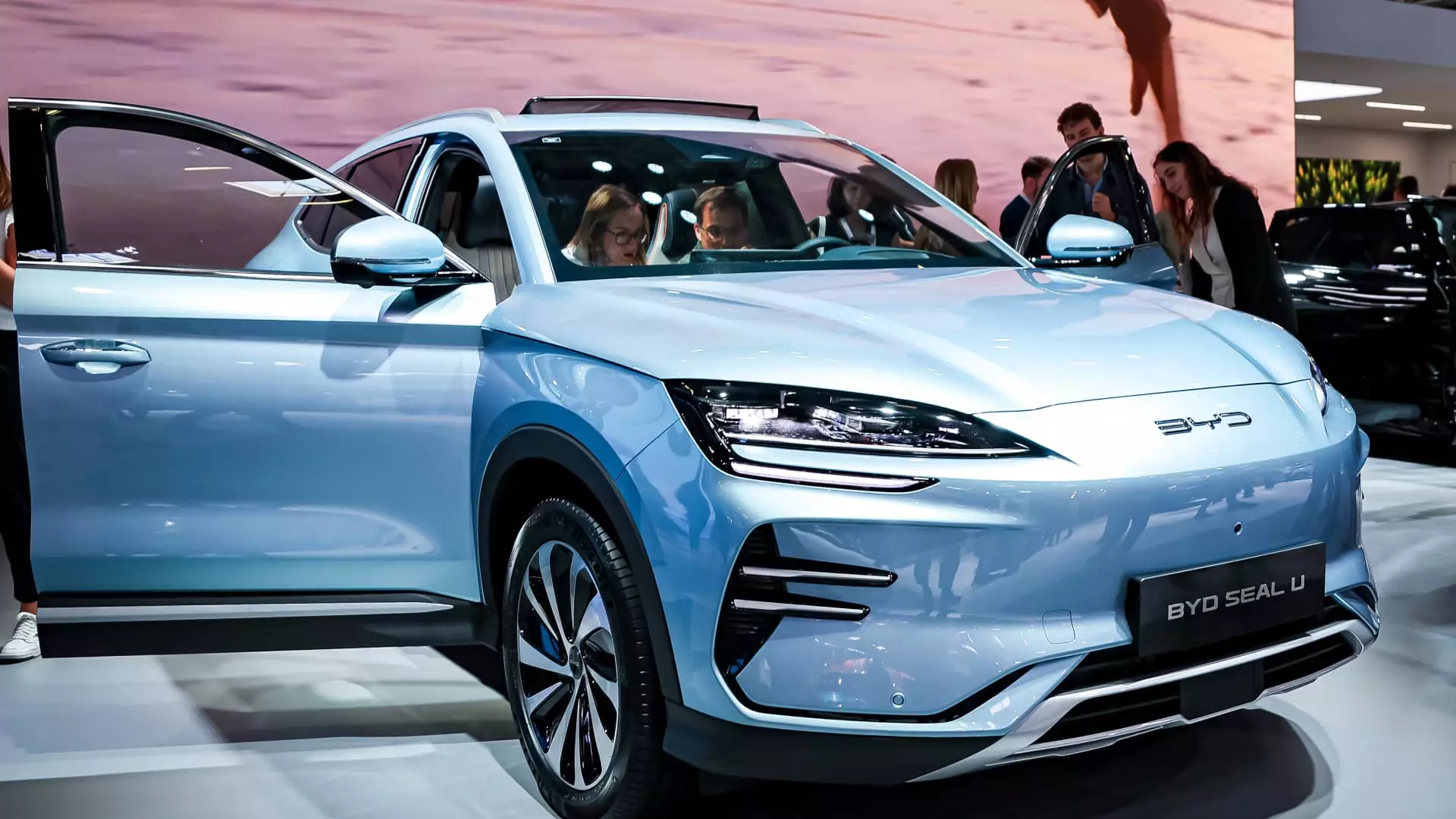The latest report from Counterpoint Research indicates that Chinese electric vehicle maker BYD is poised to surpass Tesla in battery electric vehicle sales for the current year. This significant shift highlights the ever-changing landscape of the global EV market, with BYD’s market share expected to experience a notable surge. In the second quarter, BYD witnessed a substantial increase of nearly 21% in battery EV sales year on year, reaching 426,039 units, while Tesla’s second-quarter deliveries declined by 4.8% to 443,956 vehicles.
In the previous year, BYD achieved a total production exceeding 3 million units, combining battery-only vehicles and hybrids, surpassing Tesla’s production of 1.84 million cars for the second consecutive year. Although Tesla leads in battery-only passenger car production, BYD’s output of 1.6 million battery-only passenger cars and 1.4 million hybrids solidifies its position as a major player in the BEV segment. Despite losing the top EV vendor spot to Tesla in the first quarter, China continues to assert its dominance in the BEV market, with BYD at the forefront.
Counterpoint Research emphasizes China’s significant role in the BEV market, projecting that the country will maintain over 50% of the global BEV sales market share until 2027. Furthermore, Chinese BEV sales are forecasted to surpass the combined sales of North America and Europe by 2030. This trend underscores the growing influence of Chinese automakers on the global stage and their potential to reshape the EV market landscape.
Despite its burgeoning success, Chinese EV manufacturers face challenges in international markets. The European Union recently announced additional tariffs on Chinese EV firms to address the perceived threat to EU industry. BYD, along with other Chinese automakers, will be subject to varying levels of tariffs, potentially impacting their competitiveness in the European market. These tariffs aim to level the playing field for European EV manufacturers, who are struggling to compete with lower-priced Chinese imports.
In response to the EU tariffs, Chinese automakers may turn their focus towards emerging markets such as the Middle East, Africa, Latin America, Southeast Asia, Australia, and New Zealand. This shift in market strategy reflects the adaptability and resilience of Chinese EV manufacturers in navigating international trade challenges. The growth of the EV market will be further supported by initiatives aimed at enhancing cost-efficiency and affordability for EVs and EV batteries, driving greater adoption of electric vehicles worldwide.
The rise of BYD and its impending overtake of Tesla in the electric vehicle market exemplifies the evolving dynamics and fierce competition within the global EV industry. With China’s continued dominance and the emergence of new market opportunities, the future of electric vehicles is poised for remarkable growth and innovation.


Leave a Reply